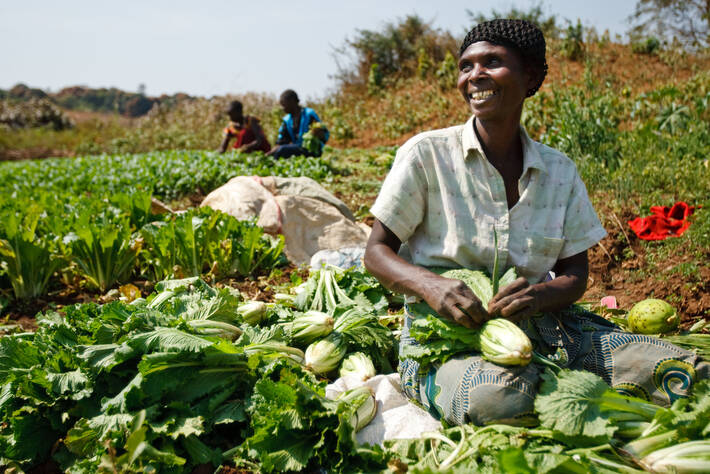The Nigeria Youth Forum (NYF) has raised serious concerns over the worsening food insecurity across the country.
In a statement issued Tuesday in Kaduna, NYF National President Toriah Filani, blamed, systemic corruption, diversion of agricultural resources, weak budgetary commitment, and poor oversight for the deepening crisis.
Filani described Nigeria’s over-reliance on food imports and foreign aid, in spite of its 84 million hectares of arable land, as a “national tragedy and policy failure.
He alleged that agricultural equipment procured by the government often ended up diverted for private gain, depriving genuine farmers of the tools needed to improve productivity.
According to him, only 35 per cent of Nigeria’s cultivable land is currently in use, largely by smallholder farmers with little to no access to modern machinery or support services.
“Government may be trying, but the reality in the fields tells a different story,” Filani said.
“Machinery meant for communities is being sold off. This sabotages all efforts toward food sufficiency.”
Filani also criticised the federal government’s historical underfunding of the sector.
He noted that only 1.32 per cent of the 2024 national budget was allocated to agriculture, far below the 10 per cent target set under the African Union’s Maputo and Malabo Declarations.
He, however, acknowledged a 128 per cent increase in the 2025 allocation to ₦826 billion, up from ₦362 billion in 2024.
“While the increased funding is welcome, allocation alone is not enough,” he added.
According to him, only 15 to 19 per cent of allocated funds actually reach the sector. The rest is lost to bureaucracy and corruption.
He cited the Anchor Borrowers’ Scheme and the National Agricultural Technology and Innovation Policy as examples of poorly implemented initiatives that had yet to deliver substantial impact.
Filani stressed that Nigeria’s agriculture sector held the key to solving youth unemployment, boosting GDP, and addressing rural insecurity.
He referenced Kano State, where consistent investment in infrastructure such as dams had enabled year-round farming and reduced crime rates.
“The industrialisation of Nigeria cannot happen without first developing our agriculture and metal industries.
“A strong agro-economic base is the foundation for sustainable growth,” he stated.
To reverse the current trend, Filani called on President Bola Tinubu to declare a national agricultural emergency and launch a comprehensive, youth-focused and innovation-driven revival plan.
He also urged the government to expand mechanised farming schemes and reduce the physical burden on rural farmers.
He proposed the establishment of state-level productivity benchmarks and a public dashboard to ensure transparency and accountability in project implementation and budget execution.
Quoting data from the Food and Agriculture Organisation (FAO) and the National Bureau of Statistics (NBS), Filani warned that over 25 million Nigerians could face acute food insecurity if urgent action was not taken.
“Nigeria was ranked 103rd out of 121 countries in the 2023 Global Hunger Index,” he noted.
“That is a damning indictment of our failure to harness our natural advantage.”
He warned that “unless we start measuring impact and enforcing accountability, reforms will remain televised propaganda.
“Nigeria should be the food basket of Africa, not a nation of hungry people sitting on fertile soil.”
NAN



